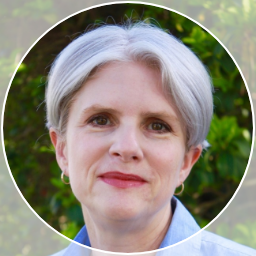Building Your Caregiving Support Team
Experts, from peers to professionals, can help you build your caregiving muscle to ensure strength for difficult days
When you're getting into shape, you often have some support along the way. You might find a running buddy, join a spin class or hire a personal trainer. Whether you've just begun caring for a loved one or are spending more time doing so as their health declines, many experts — from peers to professionals — can help you build your caregiving muscle, ensuring strength for difficult days ahead.

You can find expertise in support groups, peer mentors, care managers, coaches and consultants. No matter what level of help you need, having someone by your side who understands your situation can significantly lower your stress and ultimately make life better for your loved one.
"Having people who understand caregiving in your support team means you're not learning everything on your own," said Liz O'Donnell, founder of Working Daughter, which helps women balance eldercare and their careers.
Here's a closer look at a few of your options:
Peer Support
Loneliness can take a toll on your mental and physical health. Thirty-eight percent of caregivers in a recent AARP study reported that caregiving increased loneliness. "Caregiving is just inherently isolating," said AARP national caregiving expert Amy Goyer.
"Caregiving is just inherently isolating."
"It's a matter of not being able to fit much of anything else in your life, and the other aspect of it is the other people who have been in our lives often don't fully understand what we're going through."
Many organizations host free support groups where caregivers meet regularly to share stories and advice. They're also a place to vent with people who understand all too well what you're going through. Often, they have a specific focus, run by organizations such as the Alzheimer's Association, CancerCare or the ALS Association.
The Benefits of Support Groups
In addition to in-person options, there are convenient virtual ones via platforms like Zoom and online communities available 24/7. The AARP Family Caregivers Facebook Discussion Group that Goyer moderates has 17,000 members who share their experiences and ask and answer questions ranging from whether to tell someone with dementia about a relative's death to what benefits are available to help defray costs.
"I learned precious tips – just how to talk to somebody when they're distressed and lower your voice, get down to their level eye to eye, put your hand on their knee."
O'Donnell's Working Daughter Facebook group focuses on women and men balancing caring for aging parents with their careers and the rest of their lives. During in-person or Zoom gatherings, moderators often enforce ground rules to establish a respectful environment and ensure everyone has an opportunity to speak, so quieter members don't get overlooked.
In a good support group, there's no pressure to share more than you're comfortable with. "Some people say, 'I'm not a support group kind of person,'" Goyer said. "But many support groups stress the education aspect. You go there and learn and get resources and get help."
After Lisa Warren's husband Bill was diagnosed with Alzheimer's disease, the couple, who lives in Orlando, Florida, joined a group designed for couples where one spouse was in the early stages of the condition. They learned valuable information and forged close friendships, gathering for lunches outside the regular meetings.
As Bill's condition worsened, Lisa moved on to meetings for caregivers. "I learned precious tips – just how to talk to somebody when they're distressed and lower your voice, get down to their level eye to eye, put your hand on their knee," said Warren. "I've gotten so much out of support groups, and now, since I've been on this journey so long, I tend to be the one to offer advice and suggestions."
Faith communities, hospitals, disease associations, assisted living facilities and social service agencies are among the places that host support groups. Area Agencies on Aging can also help you find groups in your area.
Some organizations, including the VA Caregiver Support Program and the American Brain Tumor Association, offer one-on-one, peer-to-peer mentoring with current or former caregivers. Duet: Partners in Health and Aging, an Arizona-based nonprofit, connects caregivers nationwide with mentors who check in via weekly phone calls.
Caregiver Coaches and Consultants
For fees that vary widely — from as low as $40 an hour to over $100 — a coach or consultant can help you devise effective caregiver strategies. Topics covered in sessions include setting priorities, negotiating flexibility at work and dealing with difficult emotions.
Sascha Proudlove of Mountain Lake, New Jersey, started coaching sessions with O'Donnell after she began caregiving for her stepfather, who is in the early stages of dementia. "You get the advantage of the wisdom and the experience," said Proudlove, who gained valuable insights about managing her stepfather's care and "an incredible sounding board."
Coaches and consultants are often current or former caregivers themselves. Some undergo training and certification through various programs, including coaching organizations, the Society of Certified Senior Advisors or the Caregiving Years Training Academy, which has multiple designations, including Certified Caregiving Consultant.
When looking for a coach or consultant, "I recommend that a person look for someone who has had a similar life experience," said Caregiving Years Training Academy founder and owner Denise Brown, who also hosts an online community, Caring Our Way. "Then you'll both start from a place of knowing."
Many coaches and consultants will provide a free consultation to help you see whether they are the right fit. Like the fees, the frequency of sessions varies widely. Some clients have just a few throughout their caregiving journey. Others may meet every couple of months.
Geriatric Care Managers
These trained professionals work directly with older or ill people and their families to enhance their quality of life. Often, care managers are nurses or social workers focusing on aging and elder care; others may have a background in fields like physical or occupational therapy or health care administration.
"It's helped me increasingly to trust myself and feel confident I'm working with trusted advisers, and I'm not operating with knee-jerk reactions in a vacuum."
They are advocates for their clients, guiding families through health care and legal systems. They meet regularly with patients to monitor progress and can accompany them to doctor's appointments or set up meetings with assisted living or skilled nursing facilities to discuss care plans.
They can help find resources like medication discount programs or mobile medical clinics. Their services include overseeing bill paying, coordinating government assistance, insurance and other benefits, helping families find senior housing and arranging respite care. These services often cost anywhere from $100 to $300 per hour — not including an initial assessment — depending on experience and location.
Sometimes, care managers will work with families to offer pricing flexibility. But managers note that caregivers, especially those working or raising families, should consider the costs of their own time and lack of expertise in areas like qualifying for benefits or ensuring quality care in skilled nursing facilities.
"How much of your time are you taking off work and possibly not getting paid for it to navigate something you don't have a lot of knowledge in?" said Anne Sansevero, a New York care manager and president of the Aging Life Care Association, a nonprofit group representing care managers. Also, she noted, "sometimes care managers can save clients money in the long run" by helping them qualify for benefits.
The Aging Life Care Association has a nationwide directory of members, listing their levels of experience and expertise. Despite the name, these professionals also help younger people who have brain injuries, mental health problems or severe or chronic illnesses of any type.
Proudlove has enlisted the services of a care manager, as well as a coach, to help coordinate care for her stepfather, who lives in another state. Between the coaching and the care manager, she said, "It's helped me increasingly to trust myself and feel confident I'm working with trusted advisers, and I'm not operating with knee-jerk reactions in a vacuum."
Your caregiving support system could include clergy, social workers, volunteers, counselors and home and respite care providers. Brown suggests you assemble your team before you need it.
"Oftentimes when everything is great, we say, it's so easy," she said. "We neglect to spend time on our best day building support so that when we're really stressed out, we don't have to think about how to join a support group. We can connect to the relationships we know are good for us if we've done some research on our good days."


